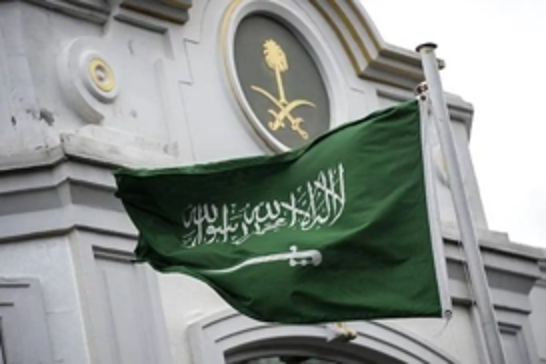
ARABIAN TIMES NEWS NETWORK
In the heart of East Jerusalem, where the ancient stones of the Al-Aqsa mosque compound whisper tales of profound significance to both Islam and Judaism, tensions have reached a boiling point. The compound, a symbol of profound reverence and historical importance, has once again become the epicenter of controversy. Recent events have stirred outrage, with Saudi Arabia taking a firm stand against what it describes as repeated Israeli incursions.
On a fateful day, Israeli far-right National Security Minister Itamar Ben Gvir led a large group of Israelis into the compound. This was not merely a visit but an act of prayer, marking a Jewish holiday, which has sparked significant unrest. For many, this act is seen as a blatant defiance of international norms and an affront to the sanctity of a site revered by millions of Muslims worldwide. The Saudi Foreign Ministry issued a stern condemnation, emphasizing the necessity of respecting religious sanctities and warning against continued violations of international law and the historical status of Jerusalem.
The statement from Saudi Arabia was unequivocal. It condemned the provocative actions and underscored the importance of upholding international resolutions and laws concerning the mosque compound. The Kingdom expressed its concern over the potential provocation of millions of Muslims and urged the international community to act decisively to halt these ongoing violations.
The situation in Gaza adds another layer of tragedy to the already complex and fraught dynamics. The relentless bombardment by Israel, which has been ongoing for over ten months, has devastated families and left countless individuals mourning the loss of their loved ones. The recent airstrikes have been particularly harrowing, with two tragic incidents highlighting the devastating impact of the conflict on civilians.
In one of these incidents, a young girl, Reem Abu Hayyah, only three months old, emerged as the sole survivor of an airstrike that destroyed her family home near Khan Younis. The strike claimed the lives of her parents and five siblings, all of whom were children. The horror of this loss is compounded by the fact that Reem is too young to understand the gravity of her situation, as described by her grieving aunt, Soad Abu Hayyah. Reem’s inability to accept formula milk, as she is accustomed to her mother’s milk, underscores the profound disruption and sorrow experienced by those affected.
Further north, Mohamed Abuel-Qomasan faced his own heartbreaking ordeal. The airstrike that destroyed his home also took the lives of his wife and their newborn twins, who had been born just days earlier. The family’s tragedy was compounded by the destruction of the home he had sought refuge in after heeding evacuation orders. The emotional weight of his loss was palpable as he clutched the birth certificates of his twins, reflecting the deep personal grief and bewilderment faced by many in Gaza.
The Israeli military, while asserting that it aims to avoid civilian casualties and blaming Hamas for the deaths due to its operations within residential areas, has faced criticism for its actions. The ongoing conflict has resulted in a staggering number of casualties and has left a significant portion of Gaza’s population displaced and struggling.









